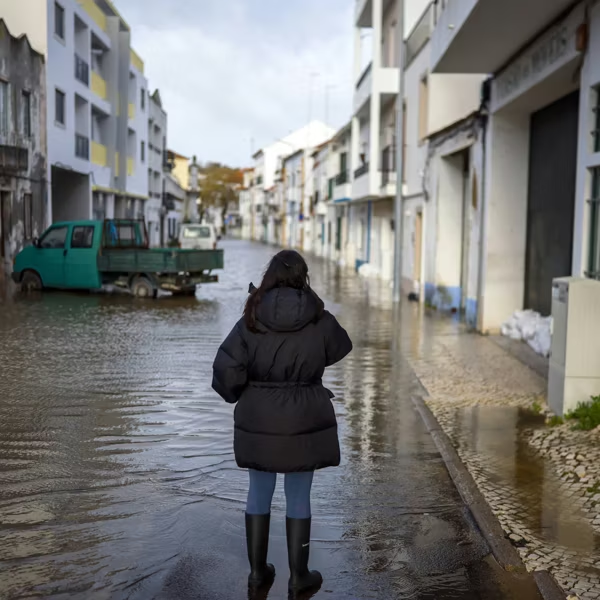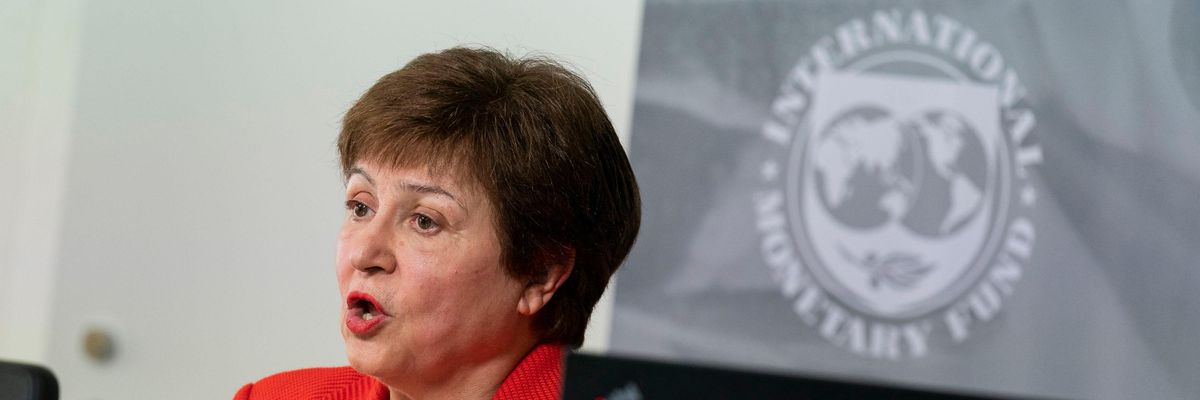The global economic outlook has "darkened significantly," with the world facing an elevated risk of a recession within the next year, the head of the International Monetary Fund warned Wednesday.
"Multiple crises facing the world have intensified."
"It is going to be a tough 2022--and possibly an even tougher 2023, with increased risk of recession," IMF managing director Kristalina Georgieva wrote in a blog post.
Georgieva's warning came ahead as finance ministers and central bank governors from Group of 20 (G20) nations meet in Bali, Indonesia this week to discuss issues including Russia's invasion of Ukraine, food security, soaring inflation, the Covid-19 pandemic, debt, and the climate emergency.
"When the G20 last met in April, the IMF had just cut its global growth forecast to 3.6% for this year and next--and we warned this could get worse given potential downside risks," the head of the neoliberal financial institution noted. "Since then, several of those risks have materialized--and the multiple crises facing the world have intensified."
Georgieva continued:
The human tragedy of the war in Ukraine has worsened. So, too, has its economic impact especially through commodity price shocks that are slowing growth and exacerbating a cost-of-living crisis that affects hundreds of millions of people--and especially poor people who cannot afford to feed their families.
And it's only getting worse. Inflation is higher than expected and has broadened beyond food and energy prices. This has prompted major central banks to announce further monetary tightening--which is necessary but will weigh on the recovery. Continuing pandemic-related disruptions--especially in China--and renewed bottlenecks in global supply chains have hampered economic activity.
The IMF chief called on countries to "do everything in their power" to reduce inflation, "tighten their fiscal policy," and engage in "more coordinated international action" to alleviate the cost-of-living, hunger, and supply chain crises.
"As the G20 meets to navigate the current sea of troubles," Georgieva added, "we can all take inspiration from a Balinese phrase that captures the spirit that is needed more than ever--'menyama braya,' 'everyone is a brother or sister.'"
Eric LeCompte, executive director of the advocacy group Jubilee USA Network, called on the G20 attendees to "act quickly to prevent a recession and address food and debt crises."
"Rising interest rates mean developing countries have higher debt payments just when they need to invest more to protect their people," he said. "Countries need debt relief, not more debt."




